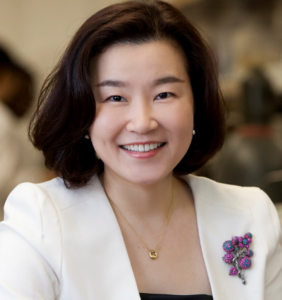Biography
In 2008, Professor Jun joined the faculty at Washington University in St. Louis. She directs the Environmental NanoChemistry Laboratory. She received her bachelor’s and master’s degrees from Ewha Woman’s University (South Korea), holds master’s and PhD degrees in Environmental Chemistry from Harvard University, and conducted postdoctoral research at the University of California-Berkeley/Lawrence Berkeley National Laboratory. She investigates chemical reactions in energy-related subsurface systems and water quality. Further, based on nanoscale interfacial chemistry and solid nucleation, her research group also seeks new techniques and materials for more sustainable energy and environmental systems. Professor Jun received a 2008 Ralph E. Powe Junior Faculty Enhancement Award, a 2011 U.S. National Science Foundation CAREER award, the 2020 James M. Lee Memorial Award, the 2022 Jackson Award, and a 2022 Association of Environmental Engineering and Science Professors’ Distinguished Service Award. She was named a 2015 Kavli Fellow by the U.S. National Academy of Sciences, a 2016 Frontier of Engineering Fellow by the U.S. National Academy of Engineering, a 2018 Fellow of the Royal Society of Chemistry, and a 2019 Fellow of the American Chemical Society (ACS). She serves on ACS’s Committee on Science as the Chair of the Science & Technology Subcommittee; an Editorial Board Member of ACS ES&T: Engineering, RSC Advances, the Journal of Hazardous Materials (2019-2022), Current Opinion in Chemical Engineering, Geochemical Transactions, and Scientific Reports; and an Advisory Board Member of Environmental Science: Processes and Impacts.
Research
Young-Shin Jun’s research is highly interdisciplinary: Her group’s expertise includes environmental chemistry and engineering, geochemistry, nanochemistry, materials chemistry and engineering, surface chemistry, and chemical engineering. Their work investigates energy-related subsurface engineering systems, including geologic CO2 sequestration, underground hydrogen storage, conventional and unconventional oil and gas recovery, hydrothermal energy, and nuclear waste disposal. Based on a scientific understanding of nanoscale interfacial chemistry and solid nucleation, they seek new treatment techniques and new catalysts for purifying drinking water and remediating contaminated water and soil, benefiting water reuse, managed aquifer recharge, and membrane processes (reverse osmosis membranes and ultrafiltration). In addition, her group studies biomineralization and bio-inspired chemistry to develop novel materials for a more sustainable environment.
